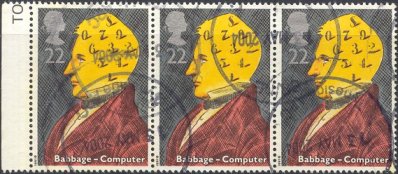
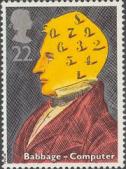
Charles Babbage
England


1991. Scientific achievements
| SG1546 | 22 pence | Babbage |
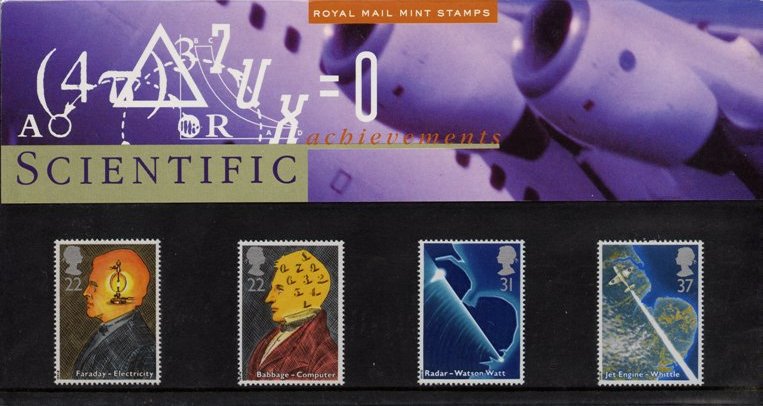
Presentation pack
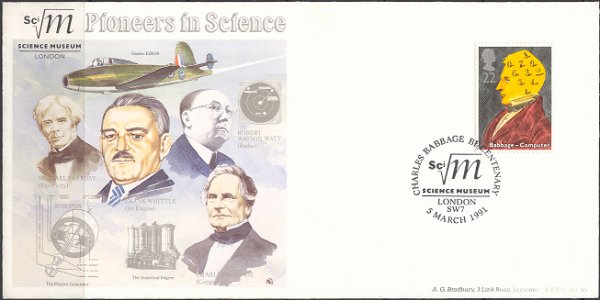
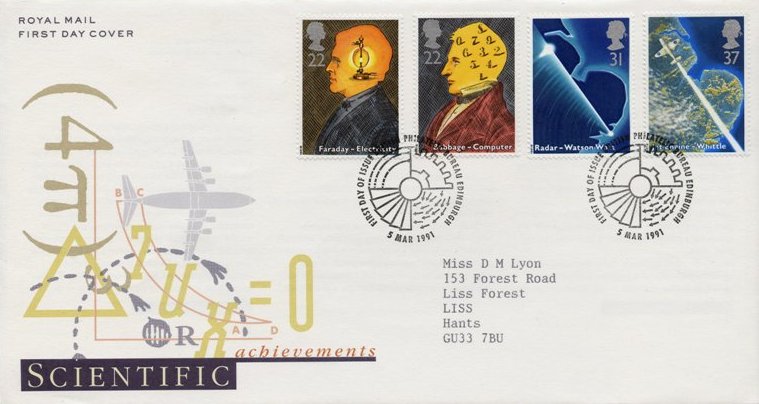
First day covers
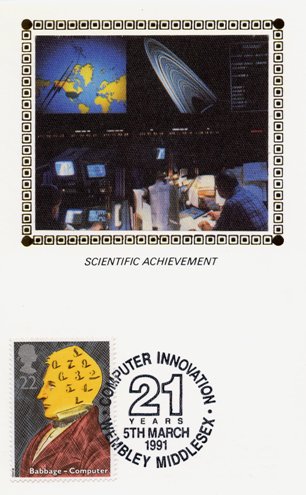
Silk maxi card
|
Babbage used to be the Lucasian Professor of Mathematics at University of Cambridge, a pretigous position which Newton had, and later Dirac also, held. Born into a weathy family in 1791 in London, after some education in Middlesex, Babbage came home and then was lectured privately by an Oxford tutor up to university level. In 1810, Babbage entered Trinity College in Cambridge but he found the time and the mathematics taught there dissatisfying. While still an undergraduate, Babbage, Peacock and Herschel founded the Analytical Society and they published some joint works together. Only six years later, Babbage was elected to the Royal Society of London, but once again, he found it unhappy too. At the age of 29, he became a member of Royal Society of Edinburgh and was one of those who established the Royal Astronomical Society, where he first served as a secretary and then the vice-president. There is no doubt that Babbage was one of the fathers of the modern computer nowadays. He was the first one to design a machine capable of doing complex operations and for that he was awarded the gold medal from the Astronomical Society in 1823. However, Babbage did not stop at that point, he seeked funds from the government to make a larger engine. Unfortunately, the cost was getting bigger and it was out of question in 1827, a tragedy year for Babbage as his father and all of his small family died. Few years later, Babbage continued working on the project with some more grants promised by the government. However, that stopped soon in 1834 when Babbage only just finished the drawings of the analytical machine. Although Babbage's computer was not progressed any further until his death in 1871, his ideas were proved to be right long time later and similar to the way the present computers work.
|
| Mathematics Home |
|
|
|
|
@ Hung